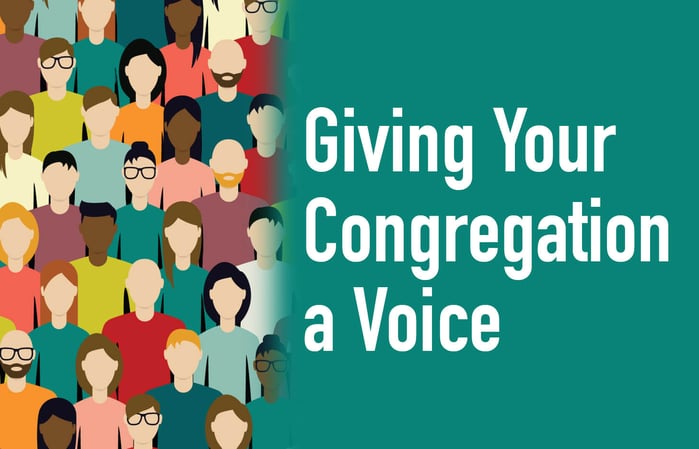
An untold number of hurting people will come into your sanctuary this week.
Their problems will be overwhelming: crushing finances, marital train-wrecks, unexpected diagnoses, relentless depression, wayward children, failing parents, debilitating addictions...or any combination of the above.
They may not feel like singing, so it may be tempting for us to do their singing for them. We offer a sort of “worship by proxy”—a vicarious experience. And this can be good, but perhaps not quite as good as giving them their own voice.
What does it mean to give those in your congregation their own voice?
The Psalms—the hymnal of both Israel and the early church—are filled with an inexpressible range of emotions. Yes, Psalms extol the Lord’s faithfulness, mercy, and love. But these songs also voice other, heart-wrenching realities: the inconsolable loss of a child, emotional abandonment, personal betrayal, sickness and depression, confession of moral failures, personal and spiritual estrangement, and self-justified fist-shaking at the God of heaven.
In the book that immediately precedes the Psalms, Job and the Lord "have it out" over the mystery of why God allows his children to suffer. The Lord listens to Job’s case against him as well as the criticisms of Job by his so-called religious friends. It’s ironic that—after Job finally confesses that he’ll just have to trust God’s unknowable purpose—the Lord condemns Job’s friends because they “have not spoken the truth about me, as my servant Job has” (Job 42:7).
When you go back and read the things these guys said to Job, it’s easy to think his friends were right—but they weren’t. They offered simplistic, two-dimensional religious responses, and God was angry with them for misrepresenting his character and the value of suffering.
The Lord would rather have Job’s authentic anger than his friends’ inauthentic platitudes.
Too often, those of us who lead worship are guilty of being like Job’s friends. Our words may sound consoling and wise, but too often we offer trite adages rather than honest truth. To admit our confusion and pain seems so...well, so unchristian. Real followers of Jesus don’t give voice to their problems...or do we?
The Psalms not only gives us permission to be authentic, they give us a mandate.
So in addition to songs of adulation and praise, let’s offer our congregations songs of contrition and confession. Temper songs that end with “...and now I am happy all the day” with songs about walking “through the valley of the shadow of death.”
Our worship should be where heaven—with all of God’s splendor and glory—meets earth—where our broken humanity is being slowly but surely redeemed. When we’re honest with God and honest with ourselves, our worship honors God and heals hearts.
Remember, Christ didn’t come for the healthy but for the sick. Not for the self-righteous, but for the sinners (Mark 2:17). So it’s legitimate for us to voice our brokenness and burdens—even in our congregational worship. As we do, those who feel disenfranchised and despairing will find their voice and be drawn to the only One who can move us from darkness to light:
“Come to me, all you who are weary and burdened, and I will give you rest. Take my yoke upon you and learn from me, for I am gentle and humble in heart, and you will find rest for your souls. For my yoke is easy and my burden is light” (Matthew 11:28-30).
This week, work toward giving those who don’t feel like singing a song that embodies their hurts as well as their hopes. Don’t let them sit in the grandstands silently watching; rather, give your congregation a way to voice what is really going on in their lives.
--For more articles about developing a theology of worship, go to www.discoverworship.com.










